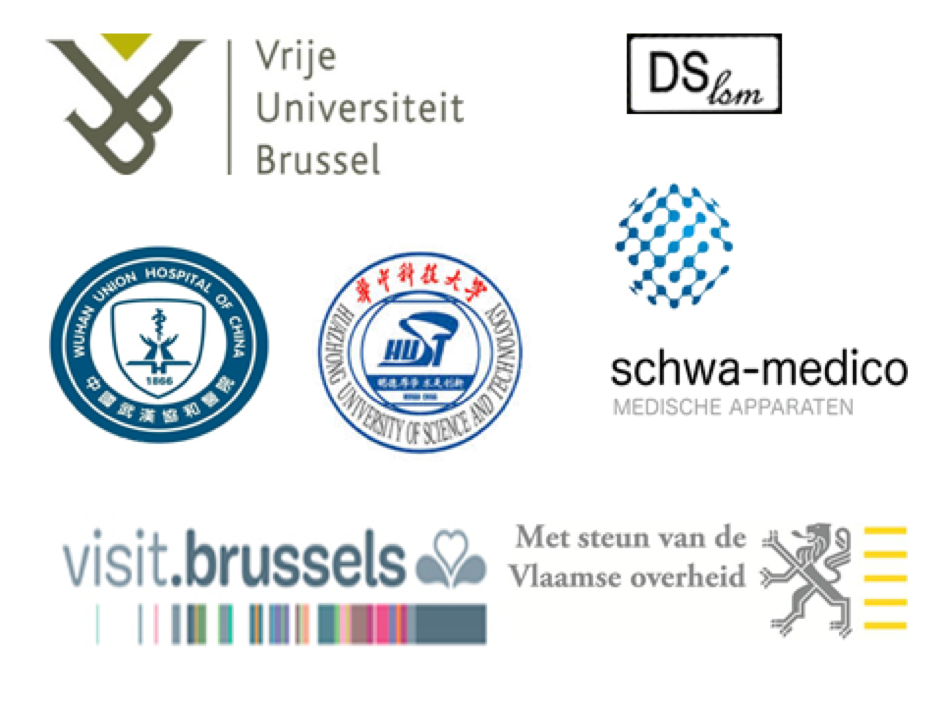March 26, 2015: 120 participants gather together for two days of pain science in the European capital, during the first ever International and Interdisciplinary Colloquium on Research Methods in Pain Sciences. Pain Science in Motion welcomed 29 speakers from all parts of the world and 120 participants in total. The Life Science Campus of the Vrije Universiteit Brussel hosted the colloquium.
It was a highly international event, including lectures from 28 pain specialist from all parts of the world: New Zealand, China, UK, the Netherlands, Sweden, USA, South-Africa, Belgium and Ireland. In addition, attendees flew in from Sweden, Italy, Ireland, USA, Germany, Switzerland, UK, France and the Netherlands, representing in total 12 countries and 5 continents! An overwhelming result for an event with a marketing budget of … 0€. This indicates the need for such a PhD-focused congress in the field of pain science.
The focus of this colloquium was on research methods in pain sciences, rather than on research findings or (clinical) applications of research findings from pain science. Researchers form different fields of pain research (fundamental, clinical, psychological, genetics, rehabilitation, methodological) presented their work and reflected on the research methods used. Vivid discussions in a very friendly and positive atmosphere addressed the specific value of the methods used and new horizons for the field of pain research.
Most importantly, the colloquium provided a forum for PhD-researchers for sharing ideas, networking, presentation of research findings, and discussion of professional issues relevant to the field of pain science. The colloquium was open to all PhD researchers in the field of pain. It didn’t matter from what country they came from, what discipline, or how far they were in preparing their PhD. Several PhD researchers in the early stage of preparing their first study as well as more experienced researchers in the final year of their PhD provided excellent and inspiring lectures. For many of them, it was their first ever lecture for an international audience.
The open atmosphere was facilitated by 4 top-level and approachable Keynotes and especially the inspiring discussions during their Meet-the-Expert sessions. Bart Morlion, president-elect of EFIC, made a plead for practicing the biopsychosocial model to address the global pain problem, and highlighted several important areas for innovation in the field of pain science, including (post)cancer pain. Johan Vlaeyen provided a compelling overview of his fundamental and clinical work on several key behavioural issues in pain patients. Eva Kosek made us understand that findings from genetics and imaging studies can be integrated to unravel (dysfunctional) pain mechanisms in chronic pain patients. She even showed the clinical applicability of her reasoning by explaining that non-invasive treatments can ‘cure’ part of the imaging and genetic findings. Finally, Raymond Ostelo made the congress participants reflect on the research methods they use for studying pain, and especially the quality of the measurements used.
The social program, free of any additional charge, contributed substantially to the key aims of the research colloquium: stimulation of (inter)national collaboration among PhD researchers from various disciplines. Following the first day’s lectures and Meet-the-expert sessions in the beautiful auditoria of the Life Science Campus Jette, all participants stayed on campus for enjoying pre-dinner drink(s) followed by a 3-course walking dinner. All drinks and food were available ad libitum and free of charge for all participants of this first ever PhD congress in the field of pain science. Many participants will also remember the Belgian beer bar and enjoyed the friendly, relaxed environment while enjoying good drinks & great food. The perfect environment for networking!
The colloquium ended with the ‘East meets West in pain science’ plenary session and the prize winner announcements. The scientific committee congratulates all PhD researchers who presented their work, because all lectures were of high quality. The following abstracts / lectures were awarded:
Zoe Franklin – United Kingdom “Defensive Coping Styles in a Chronic Musculoskeletal Pain population” Winner best oral presentation
Adriaan Louw – South Africa & U.S.A. “Preoperative Pain Neuroscience Education for Lumbar Radiculopathy” Runner-up best oral presentation
Jeroen Kregel – Belgium & the Netherlands “Structural and functional brain abnormalities in chronic low back pain: A systematic review” Runner-up best oral presentation
Bronwyn Lennox Thompson – New Zealand “Living well with chronic pain - Classical grounded theory” Winner best abstract
Alessandro Chiarotto – Italy/the Netherlands “Development of a core outcome set for Clinical trials in non-specific low back pain” Runner-up best abstract
Iris Coppieters – Belgium “Cognitive performance is related to central sensitization in patients with chronic whiplash-associated disorders and fibromyalgia: A case-control study” Runner-up best abstract
Taken together, the colloquium provided a unique platform for PhD researchers to present their work (in progress) in a friendly environment in the European capital, and to learn from Leaders in the field of pain science. The most frequently posed question to the members of the organizing and scientific committee was by far ‘When is the next edition?’ Well, at this stage we cannot guarantee anything, but we are exploring several options. We will keep you informed and hope to see you at the second edition of the Pain Science in Motion international and interdisciplinary colloquium on research methods in pain science!
Prof. Dr. Jo Nijs, Dr. Lennard Voogt, Prof. Dr. Paul van Wilgen, Prof. Dr. Stefaan Van Damme, Prof. Dr. Peter Vaes, Prof. Dr. Chris van Schravendijk, em. Prof. Dr. Frederic Camu, Prof. Dr. Maarten Moens
Pain Science in Motion Scientific Committee
